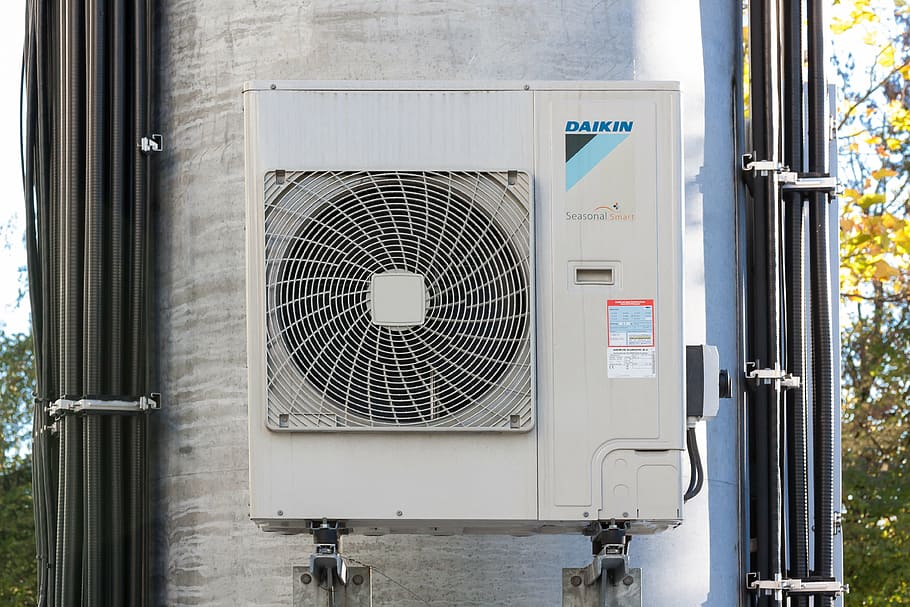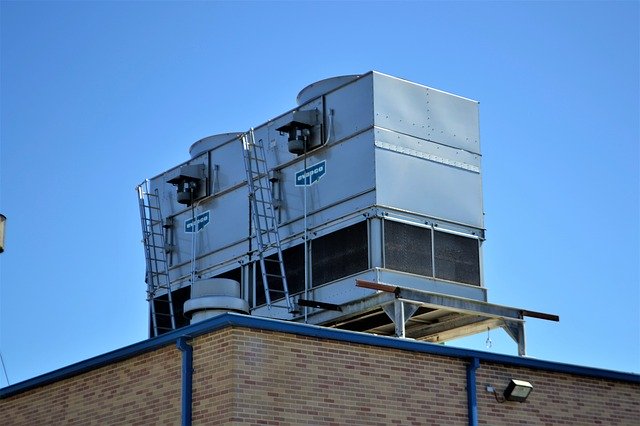You may be sleeping comfortably on a hot summer night in Lakewood when the air conditioner suddenly stops working. You can’t wait for the HVAC contractor, so you decided to troubleshoot everything yourself. If you are comfortable working with electronics, you can try repairing the unit yourself and seeing if you can make your appliance work again.

Air Conditioners Need TLC
Like any other appliances in your home, your AC needs tender loving care in order to deliver the best performance without making your electrical bills high. It’s those ACs that were not properly maintained that struggle the most on hot days. Maintenance can be done every six months or once a year, and a qualified HVAC contractor should ideally do it.
To ensure that your appliance will continue cooling your room once the weather outside begins to warm up, you can ask the experts at your local company in Lakewood, Colorado, to identify possible issues with your appliance. Some of the pros at Royal’s Heating and Air may give you a list of things you should look out for when trying to fix your AC. Here are common issues that you need to look for when identifying problems of your AC.
Possible Issues of Air Conditioning Units

1. Dirty Filters
You may have a window-type or split-type AC, but regardless of the type installed in your home, you might want to check for dirty filters. Read more about filters when you click here. The clogs on the screen will decrease your unit’s efficiency and restrict the airflow. As a result, the appliance will not be able to cool the air inside your home efficiently. If you think that it has been a long time since you scheduled a filter cleaning, then schedule maintenance as soon as possible.
There are also times when you need to check the manual and see if you are nearing your air conditioner’s lifespan. This is for the central cooling systems where filters may last from 4 months up to 1 year. If your AC is always running or you have dogs in the house, the more you should schedule maintenance for your unit.
Things to Check for Window Units
2. Too Sunny Spots
If your air conditioner is located somewhere where the sun directly shines on it, it might have a harder time cooling your room. If there are other alternatives, you can try to move it on a shady spot, preferably on the west side. If there are no other options, then use curtains and shades to block the sun from entering your house.
3. Warm Air Leaks
You need to seal all the areas around your AC completely. You might find your utility bills higher at the end of the month if hot air can enter, and the cool one is leaking outside. It’s preferable if the entire room is sealed entirely and use sill covers, door seals, and foam tapes if they are necessary.
If you just purchased your air conditioner, you might want to check for weather stripping add-ons that usually come from the manufacturer. There are insulation panels placed around the unit to make sure that the hole on the wall is completely covered. Know more about insulation panels here: https://www.familyhandyman.com/article/what-you-need-to-know-about-foam-board-insulation/.
4. Unnatural Vibrations
Your AC may indeed be noisy, but this is often the compressor’s sound when it tries to maintain the temperature in your room. After the compressor has done its job, you can hear the fan’s soft whir, which is entirely reasonable.
However, if you suddenly noticed an unnatural and vibrating noise, your appliance must be wrong. There might be something wrong with the installation, or it’s not placed securely on the window. You can try setting the AC again on the window and check the manual to make sure that you didn’t miss anything.
Checklist for Central Air Conditioning
5. Look for the Thermostats
There are times when you wake up sweaty on a humid night in Lakewood. If this is the case, you might want to check your central air conditioning unit and ensure it was set at the right temperature. If you notice that there’s something off with the thermostat, try placing it in an area where it can’t be reached by direct sunlight during the day so that it won’t register the wrong numbers.
6. Blocked or Dirty Registers

If the one inside your home is forced-air conditioning, you might want to vacuum the register grilles regularly to remove debris and dust. Arrange the furniture and other things inside the room so that they are not blocking the airflow.
7. Plants May Crowd Compressors
When plants or trees crowd the compressor located outside, then your unit may not work correctly. Make sure that the airflow is adequate and unhindered. There should be at least 3 feet of allowance between a plant and your outdoor compressor, and the clearance for trees should be 5 feet and above.
8. Annual Check-ups
A professional HVAC contractor must examine your air conditioner at least once a year. The technician will clean the filters, ensure that the small issues are addressed before they become worse, and check for moving parts. They can fix the refrigerants using specialized tools and recharge everything if it’s necessary.
New AC Units

There are times when the appliance is so old and inefficient that it’s better to purchase a new AC unit. For some people, buying a new one will save them from the hassles of shutdowns and repairs in the future, and they are confident that their new appliance will work well.
There are smaller units that can cost $300 and larger ones that are up to $1000. This depends on the model, energy efficiency, horsepower, and many other factors of the AC that you are trying to purchase. If you are the homeowner, you can check if the unit is still suitable for repair or get an expert’s advice if it’s time to buy a new AC.



